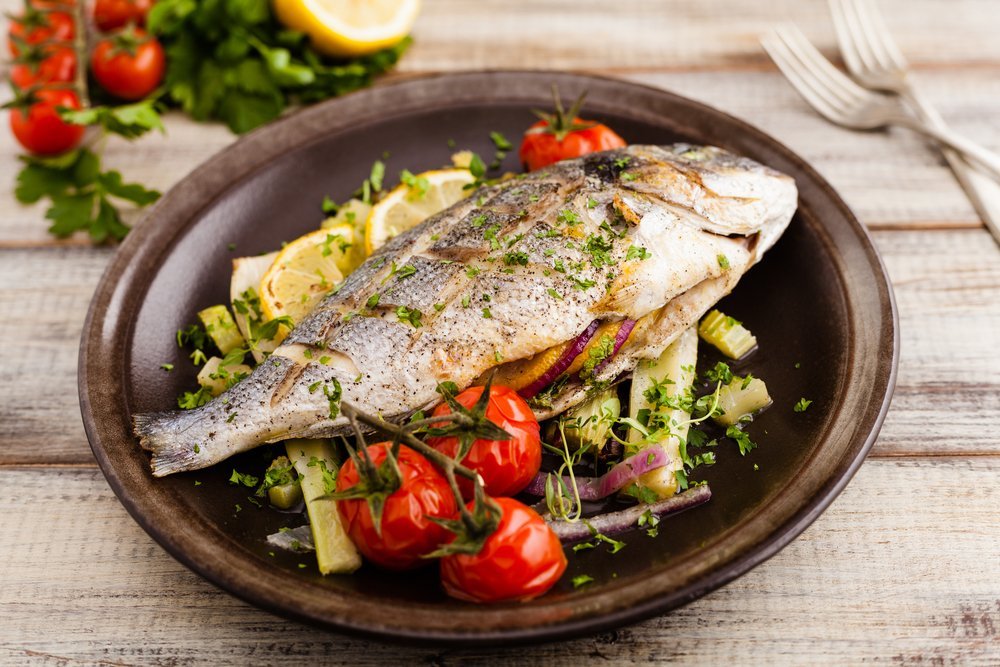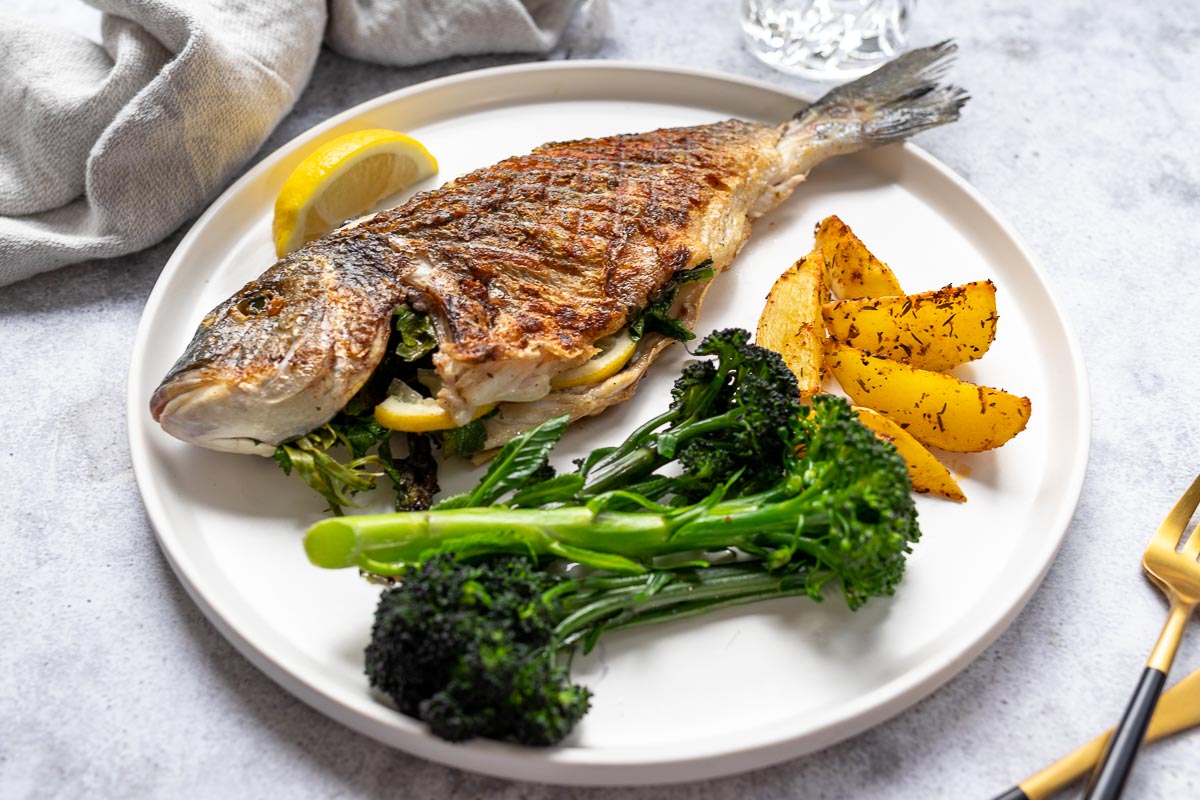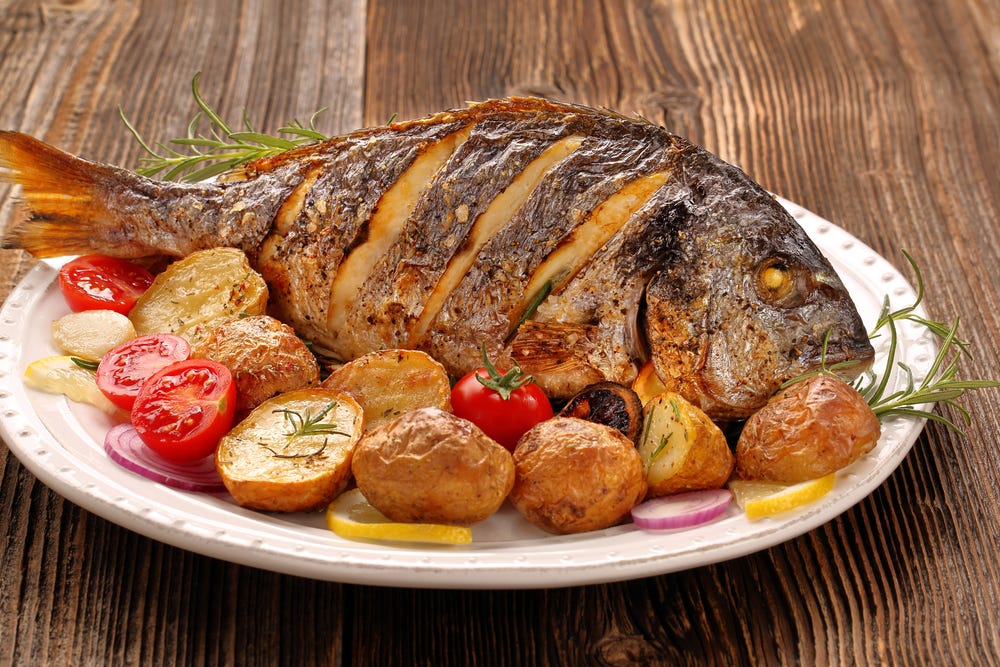How to Cook Marinated Fish: A Complete Guide for Barbecue Enthusiasts
Written By James Morgan
Welcome to the ultimate guide on how to cook marinated fish. This comprehensive journey through the kitchen and to your grill (or stove) offers everything you need to know about preparing a flavorful fish dish that will impress your friends and family on your next barbecue. Whether you're a seasoned grill master or a novice cook, this article will cover every detail, ensuring that you become an expert at cooking delicious marinated fish.
In order to cook marinated fish to perfection, it's critical to understand the basics of marinating, the best types of fish to use, essential kitchen tools, cooking techniques, and the importance of cleanup. With this comprehensive and engaging guide, you'll not only master the art of cooking marinated fish but also learn valuable cooking and grilling tips that can be applied to a variety of dishes.

Choosing the Right Fish for Marinating
The journey to creating a memorable dish starts with selecting the right fish. Different types of fish have unique flavors and textures that can influence the outcome of your recipe. Common types of fish perfect for marinating and grilling include salmon, tuna, swordfish, and mahi-mahi.
Before you head to the market, consider the texture and flavor profiles you prefer. Salmon, for instance, is rich and fatty, making it great for absorbing bold marinades. Tuna has a firm texture and robust flavor, suitable for quick grilling. Swordfish offers a mild flavor and a sturdy texture, while mahi-mahi provides a light and slightly sweet taste, ideal for tropical-themed marinades. When shopping for fish, always choose fresh over frozen for the best results. If you're unsure how to identify fresh fish, look for clear eyes, firm flesh, and a fresh ocean scent.

Essential Ingredients for Marinades
A delicious marinade is the cornerstone of flavorful marinated fish. Marinades typically consist of three main components: acids, oils, and seasonings. Understanding how these elements work together will allow you to create customized marinades that elevate the natural flavors of your fish.
Acids such as lemon juice, lime juice, vinegar, or even yogurt help to tenderize the fish and infuse it with tangy flavors. They break down the proteins in the fish, making it more flavorful and tender. Oils like olive oil, sesame oil, or coconut oil coat the fish and help the marinade adhere to the surface, ensuring even distribution of flavors. Seasonings can range from simple herbs and spices to complex blends, incorporating ingredients like garlic, ginger, soy sauce, honey, and fresh herbs like dill, parsley, or cilantro.
Experiment with different combinations to find the perfect balance for your taste buds. For instance, a classic Mediterranean marinade could include lemon juice, olive oil, garlic, oregano, and black pepper, while a tropical-inspired marinade might feature lime juice, coconut oil, soy sauce, ginger, and cilantro.

Step-by-Step Preparation
Now that you have your fish and ingredients ready, it's time to prepare your marinated fish. Follow these detailed steps to ensure success:
Step 1: Prepare the Marinade
In a mixing bowl, combine your chosen acid, oil, and seasonings. Whisk the ingredients together until well blended. Taste the marinade and adjust the seasoning as needed, adding more salt, pepper, or herbs to suit your preference.
Step 2: Marinate the Fish
Place the fish fillets in a shallow dish or a resealable plastic bag. Pour the marinade over the fish, ensuring each piece is well-coated. Cover the dish or seal the bag and refrigerate for at least 30 minutes, but no more than 2 hours. Over-marinating can cause the fish to become mushy.
Step 3: Preheat the Grill
Prepare your grill by preheating it to medium-high heat. If using a charcoal grill, arrange the coals evenly and allow them to ash over before cooking. If using a gas grill, preheat the burners on high for about 10-15 minutes, then reduce to medium-high.
Step 4: Clean the Grill Grates
To prevent sticking, clean your grill grates thoroughly using a grill brush. After cleaning, oil the grates by dipping a paper towel in oil and using tongs to rub it over the grates. This will create a non-stick surface for your fish.
Step 5: Grill the Fish
Place the marinated fish on the preheated grill, skin-side down if applicable. Grill the fish for about 3-5 minutes per side, depending on the thickness of the fillet. Avoid overcooking, as fish can quickly become dry. The fish is done when it flakes easily with a fork and reaches an internal temperature of 145F (63C).
Step 6: Serve and Enjoy
Carefully remove the fish from the grill using a fish spatula or tongs. Let it rest for a few minutes before serving to allow the juices to redistribute. Garnish with fresh herbs, lemon wedges, or a drizzle of extra marinade for added flavor. Serve your marinated fish accompanied by your favorite sides, such as grilled vegetables, rice pilaf, or a fresh salad.

Top Tips for Perfect Marinated Fish
Ensuring the best results when cooking marinated fish involves more than just following a recipe. Here are some expert tips to elevate your marinated fish cooking skills:
- Pat the fish dry: Before marinating, pat the fish dry with paper towels to remove excess moisture. This allows the marinade to adhere better and enhances browning on the grill.
- Control the marinating time: Keep a close eye on the marinating time to avoid over-marinating, which can break down the fish too much.
- Use fresh herbs and spices: The quality of your ingredients directly impacts the flavor. Opt for fresh herbs and high-quality spices to enhance the taste of your marinade.
- Dont overflip: Flip the fish only once during grilling to prevent it from falling apart and ensure even cooking.
- Pair with complementary sides: Choose sides that complement the flavors of your marinated fish, such as light and refreshing salads or citrus-infused grains.
Cleanup Tips
A successful cooking session isn't complete without thorough cleanup. Keeping your kitchen and grilling tools in top shape ensures longevity and hygiene. Here are some cleanup tips:
- Use a Cookware Cleaner to remove grease and residue from your cookware.
- Apply Cutting Board Oil to maintain the quality of your cutting board.
- Wash all utensils and surfaces that came in contact with raw fish to prevent cross-contamination.
For more great cooking tips, check out these related guides: how to cook rice in a slow cooker, how to cook a breakfast casserole, and how to cook white rice in rice cooker.
As an Amazon Associate, I earn from qualifying purchases.



